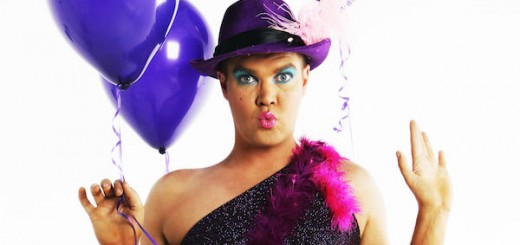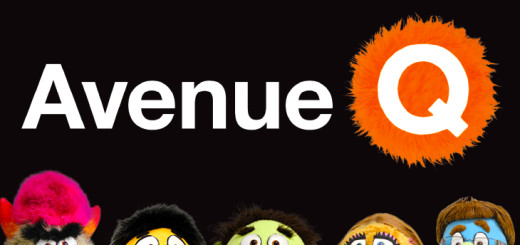
Review – 5pound theatre’s Ubu Roi
Ubu Roi (King Ubu) was written in 1896 by the French dramatist Alfred Jarry, whom scholars will note for his important contributions to absurdism, surrealism and postmodernism. In its time, it managed only one performance, shut down almost immediately by the audience’s riotous response to the play’s ostentatious profanity. The play is a loose, farcical adaptation of Macbeth, with a central character so unapologetically greedy, tyrannical, cowardly and self-obsessed that it’s easy to understand a nineteenth-century audience’s objections.
Today, Ubu Roi is hardly the scandal it once was. Profanity and perversity have been accepted in the arts for decades. A contemporary production must find more in the material, and 5Pound Theatre’s mission statement is that their focus is on the greed, corruption and tyranny that still lurk in the heart of human nature and civilization itself.
The set is striking; performed outdoors in an ankle-deep pit of mud, the first row of the audience is provided with plastic sheets to protect from the splatter. It’s a brilliant feature. The filth steadily coats the cast throughout the performance as Ubu’s power grows, and there’s something undeniably and viscerally satisfying in watching people quite literally slinging mud at each other. The ostentatiously juvenile Jarry would have approved.
The script is good, too. The profanity in particular is well-updated, and some of the best moments of the play are the vicious insult wars between the characters. (Mummy and Daddy Ubu have a particularly enjoyable dynamic.) It could do with cutting down, though – the play drags in the second and third acts, labouring the by now well-understood point that Ubu is selfish and cowardly. Though the predominantly female cast was a deliberate choice by 5Pound Theatre to “remove the patriarchal structure and inherent sexism of the script,” for some reason the performance retains every masculine title and pronoun. The effect is of male characters played by women – certainly a comment on patriarchy, but hardly a removal. Would “Ubu Reine” (pardon my French) have been such a stretch?
Adaptation is a difficult business. There is a constant struggle between loyalty to the source material and the need to update it for contemporary relevance. Ubu Roi needs more of the latter. They have preserved the filth and fun of the original, which is important, but its continuing relevance could have been made more clear. The source material is rife with potential contemporary references (unwelcome change of government, anyone?) and not enough advantage is taken of that.
A filthy frolic from a very funny ensemble, but a bit of wasted potential.








